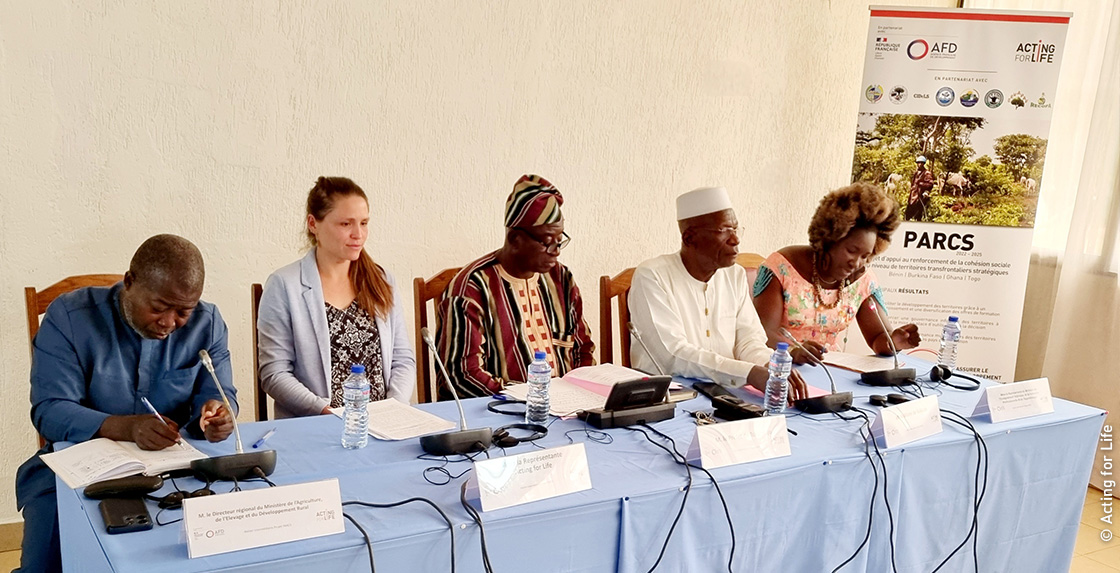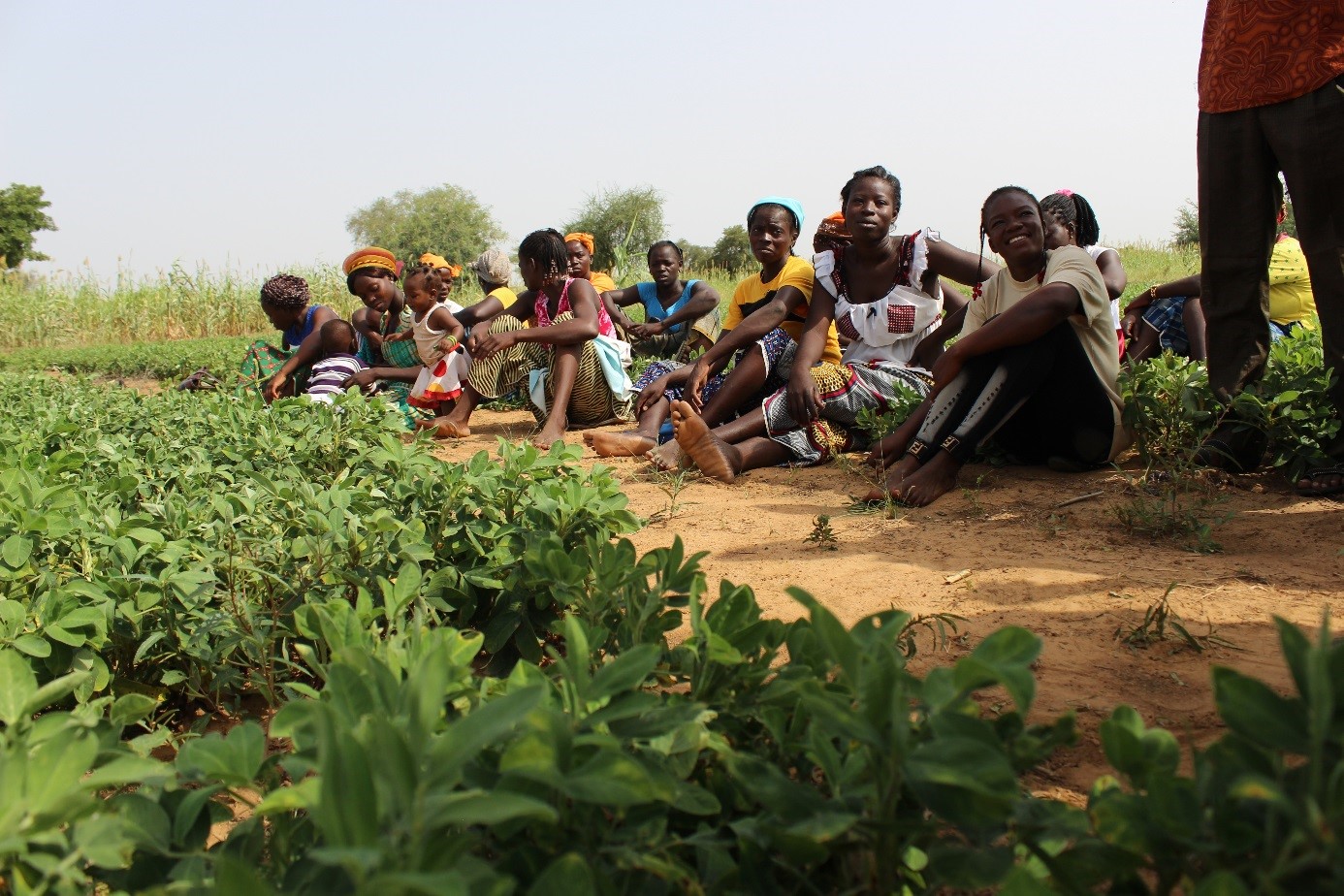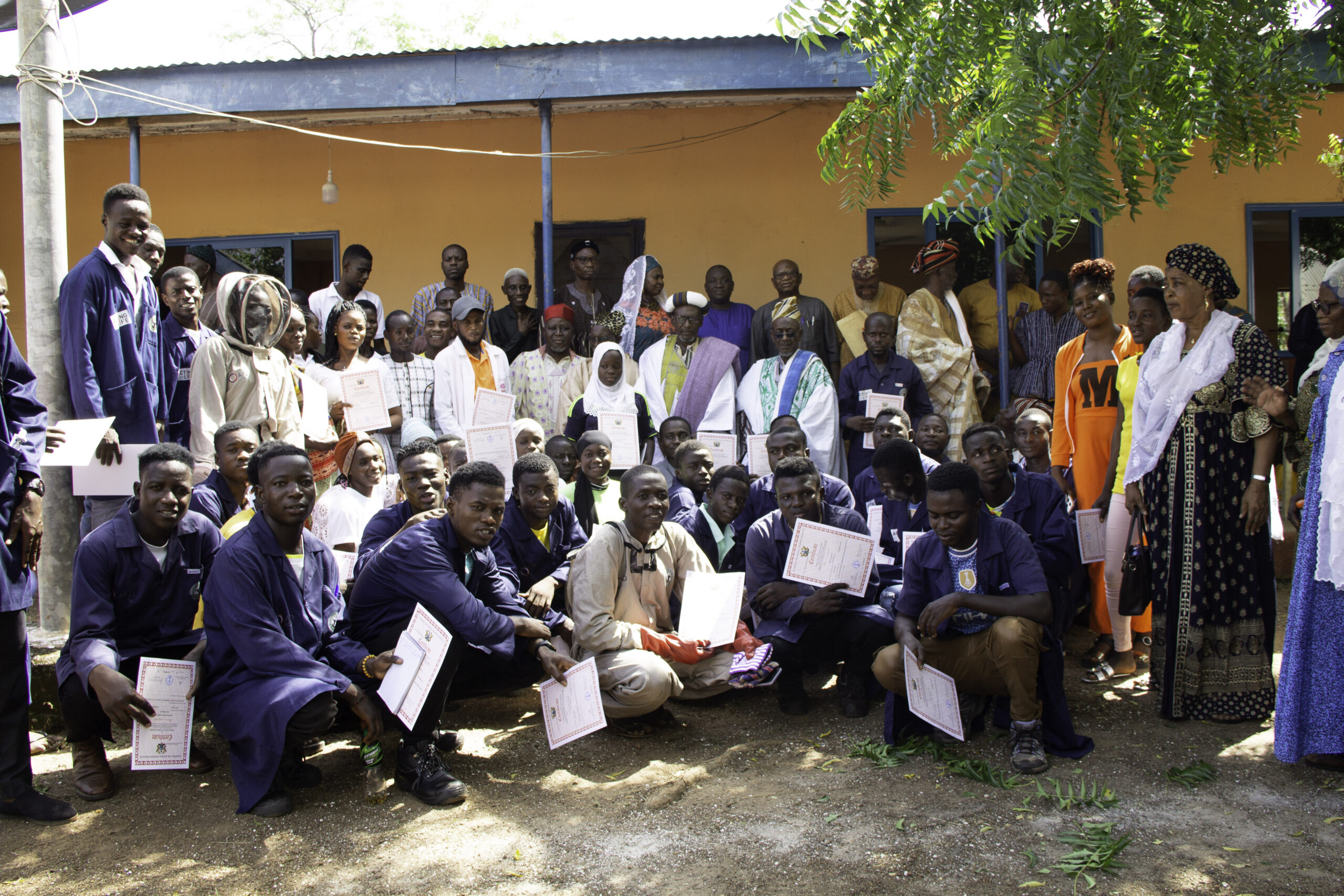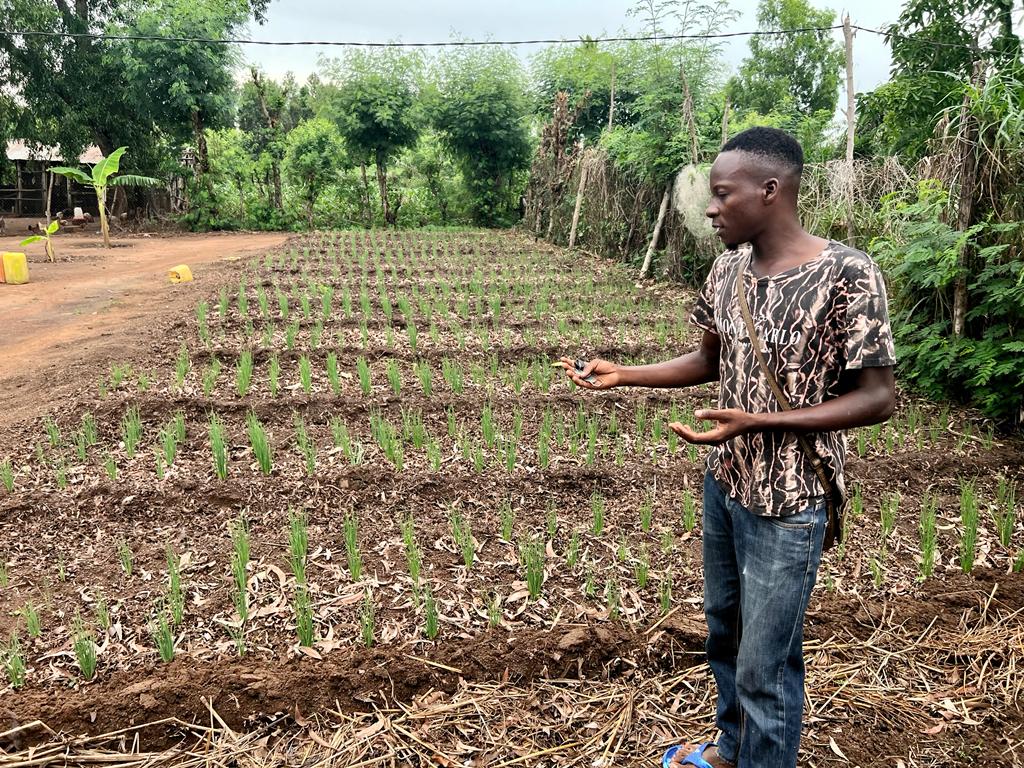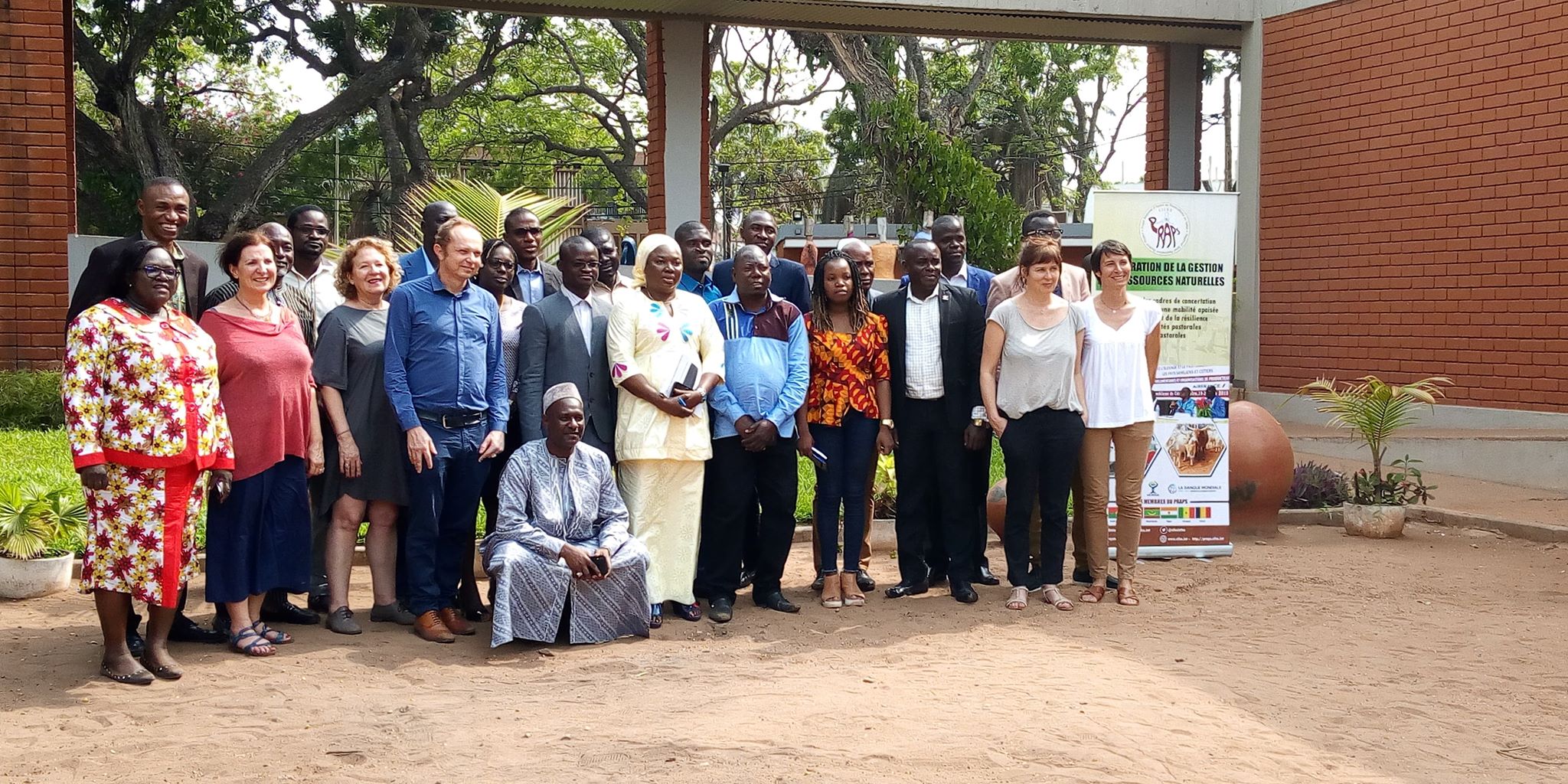The Projet d’Appui au Renforcement de la Cohésion Sociale (PARCS) in the cross-border territories of Benin, Burkina Faso, Ghana and Togo aims to strengthen social cohesion through initiatives in agropastoralism and vocational training for young people. With a budget of €2.5 million over three years, this project aims to improve stability and social integration in strategic areas often marked by insecurity.
Mid-term review: objectives and achievements
After 18 months of implementation, the mid-term workshop provided an opportunity to take stock of the activities carried out. The objectives were to assess the progress made and plan the next steps to achieve the expected results by the end of the project. The main advances concern
- Strengthening synergies with local and regional initiatives.
- The training and professional integration of young people in precarious situations, particularly in trades related to agro-pastoralism and renewable energies.
Focus on agro-pastoralism and livestock mobility
Herd mobility in West Africa has been affected by the worsening insecurity in cross-border areas. Three main trends have emerged:
- Opaque areas: Some regions are inaccessible due to insecurity, making it difficult to monitor livestock movements.
- Forced settlement of livestock farmers: More and more livestock farmers are settling permanently in coastal countries such as Benin and Ghana, thereby changing the traditional transhumance dynamic.
- Increase in west-east flows: Livestock breeders are now crossing coastal countries to access pastures and markets, creating new tensions in cross-border areas.
Focus on initiatives by country :
Benin: Training to combat job insecurity among young people
In Benin, 20 young people, including 3 women, have been trained in the electricity sector. The majority of these young people live in very precarious conditions, with difficult access to water and electricity, and food insecurity. These women, from vulnerable backgrounds, are particularly exposed to the risks of marginalisation. By taking part in technical training programmes, they acquire the skills they need to provide for their households while avoiding the pitfalls of violent extremism. The project has also raised awareness in local communities through radio broadcasts in local languages about peace and social cohesion.
Togo: Agro-pastoralism as a lever for integration
In Togo, 29 young people, including 9 women, have been trained in agropastoralism. Among them, 8 have already set up in market gardening and livestock farming. Others have drawn up business plans with a view to financing their projects. However, young people in Togo, as in the other project countries, remain worried about their future, faced with low incomes and an uncertain socio-economic environment. At the same time, training courses in photovoltaic electricity have enabled several young people to go into private practice or to be recruited by institutions.
Burkina Faso: Restricted mobility, a challenge for young livestock farmers
In Burkina Faso, insecurity has had a major impact on young people, particularly those involved in livestock farming. As a result of the occupation of pastoral areas by armed groups and the closure of livestock markets, many young people have lost their livelihoods. The project aims to give these young people new hope by involving them in training and integration initiatives tailored to local conditions.
Ghana: Diversifying opportunities
In Ghana, the PARCS project has trained 120 young people, including 54 women, in sectors such as agriculture and electricity. These figures show a significant advance in the inclusion of women in technical sectors, which are often perceived as being the preserve of men. These training courses, which enable them to obtain professional qualifications, are essential for strengthening their position on the labour market. Thanks to the support of the PARCS project, these young women can now look forward to setting up their own businesses or finding employment with local institutions.
Combating the vulnerability of young people: a major challenge
One of the main strengths of the PARCS project lies in its ability to meet the needs of vulnerable young people. These young people have been recruited on the basis of precariousness criteria, and the training courses have been adapted to meet their immediate needs while promoting their professional integration. The project also provides post-training support to ensure that these young people can establish themselves in their new activity on a long-term basis, with the support of local institutions.
Young people, agents of change
Despite the deteriorating security situation, the young people trained under the PARCS project are playing an essential role in strengthening social cohesion and economic development in their regions. By providing them with vocational skills tailored to market needs, the project is helping to transform their future and stabilise their regions. The challenge remains, however, to sustain these initiatives over the long term and to continue to support these young people so that they become agents of peace and progress in their communities.
